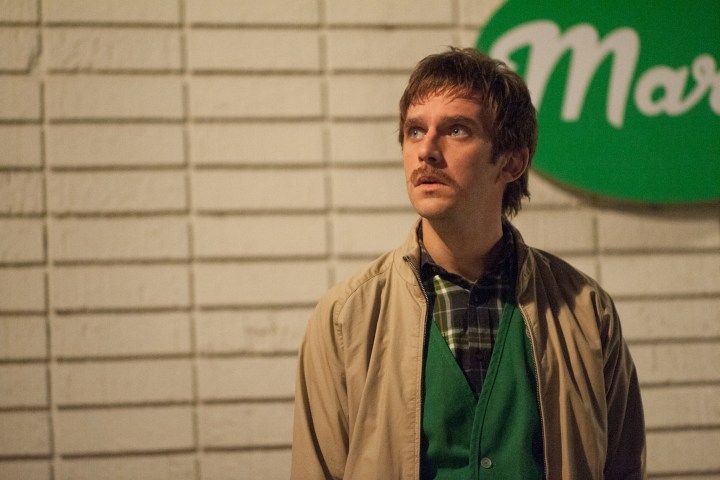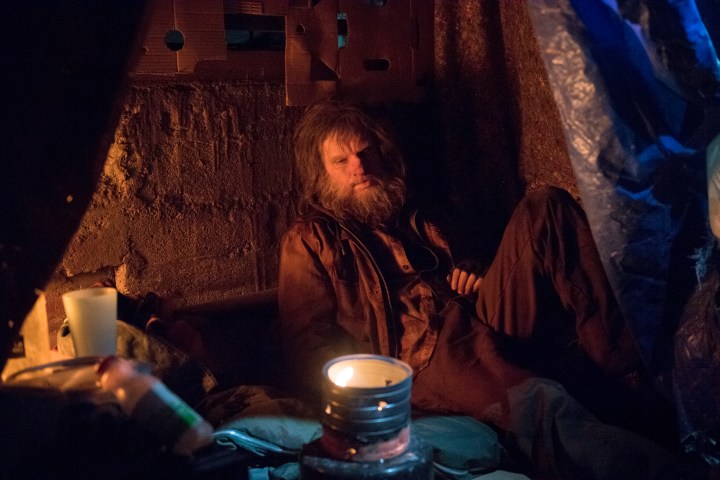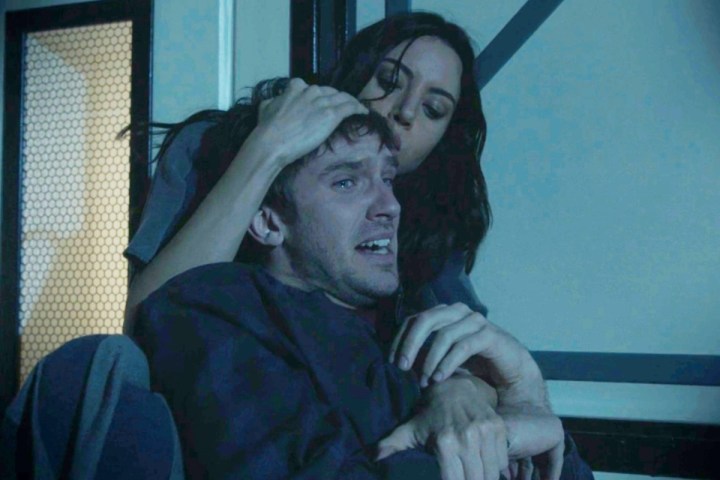Unless you’ve been living under a rock for the past few years, you’ve probably heard the word “multiverse” thrown around at one point or another. A film about one family’s multiverse-spanning relationship just won the Oscar for Best Picture this year. Meanwhile, Marvel Studios announced at San Diego Comic-Con last year that its post-Infinity Saga story would officially be known as “The Multiverse Saga.”
The studio has, consequently, gone out of its way as of late to flesh out the infinite alternate realities of the Marvel Cinematic Universe — specifically in last year’s Doctor Strange in the Multiverse of Madness and this year’s Ant-Man and the Wasp: Quantumania. Unfortunately for Marvel, outside of Loki Season 1 and Spider-Man: No Way Home, its live-action multiversal stories have all landed with a bit of a collective thud.
With that in mind, it’s worth noting that one ambitious, live-action Marvel show actually explored the concept of the multiverse on-screen long before the MCU did. Exactly 5 years ago, in fact, FX’s Legion used the multiverse as the foundation for one of its most structurally inventive and emotionally devastating episodes.
How Legion creates its multiverse

At the end of the fifth episode of Legion season 2, David Haller (Dan Stevens) learns, much to his horror, that his archnemesis, Amahl Farouk a.k.a. The Shadow King (Navid Negahban), has secretly tracked down David’s sister, Amy (Katie Aselton), and killed her. In case that wasn’t horrifying enough, David learns that Farouk not only killed his sister but then used her body as a vessel to bring Lenny (Aubrey Plaza), David’s former friend, back to life. These back-to-back reveals are among the most shocking that Legion ever delivered, and they send the series hurtling into its next installment, titled Chapter 14.
The episode, which originally aired on May 8, 2018, spends its runtime bouncing in and out of multiple different alternate realities. In each one, Dan Stevens’ David experiences a totally different kind of life. One sees him end up as an incomprehensible homeless man, while another sees him use his telepathic powers to become the most successful businessman in the world. In another reality, he’s an invalid who is taken care of in perpetuity by Amy.
Coming on the heels of Amy’s shocking death, Chapter 14 initially feels like an unnecessary detour. For much of its runtime, in fact, it’d be easy to shrug the episode off as a filler installment of Legion or another one of the show’s narrative experiments that just doesn’t quite work. The further into its runtime the episode gets, though, the clearer it becomes that Chapter 14 isn’t actually a substanceless stylistic experiment, and its alternate realities are not just excuses for Legion to be its unabashedly weird self.
Legion’s multiverse of the mind

In the closing minutes of Chapter 14, it’s revealed that the show’s multiversal story has all taken place in David Haller’s mind in the moments immediately after he’s learned about his sister’s death. The episode’s alternate realities are, in other words, all constructions made by David in the hopes that he might find a reality where he and his sister both turned out happy and alive. His desperation to create a reality that isn’t so cruel and merciless is juxtaposed with a flashback from earlier in the season in which Farouk tells David, “You decide what is real and what is not.”
Unfortunately, David’s efforts are for naught. All of the episode’s alternate realities, even the ones in which both he and Amy survive, are somehow darker and more hopeless than Legion’s prime timeline. This realization sends David’s mind back to his core reality and, in specific, his and Amy’s final conversation before he was admitted at his sister’s insistence into Clockworks Psychiatric Hospital. David, filled with anxiety over the prospect of being institutionalized, looks over at his sister and says, “It wasn’t supposed to be like this.” Amy responds, “I know. But it is.”
Given the multiversal events of the episode, Amy and David’s conversation holds enormous emotional weight. Not only does it reveal just how much Amy cared for David, but it also represents an acceptance on the part of the latter of everything that has happened since she admitted him into Clockworks. What follows is a brief montage of the events of Legion up until Amy’s death that is heartbreakingly set to a cover of Superman by R.E.M. Gobsmacked, the audience is forced to watch as lyrics like “I am Superman / And I can do anything” play over images of the relationships that David has lost and gained throughout his battle with Farouk.
Chapter 14 then ends with the below image of David, wracked with grief, sobbing in the arms of Aubrey Plaza’s Lenny, which is almost the exact same place where Legion’s previous installment concluded. By visualizing and exploring David’s mental process in the seconds after he learns about his sister’s death, though, Chapter 14 of Legion successfully adds more emotional weight to Amy’s death and finds a new way to teach David the same lesson that so many other comic book characters have learned over the years. After all, he may be the most powerful telepath in the world, but not even he can stop such corrosive emotions as grief from reaching him.
Legion’s use of the multiverse prioritizes emotion over plot

When Chapter 14 of Legion was originally released back in 2018, the reactions to it were a bit mixed. Some rightly criticized the show for trying to further emphasize Amy’s character and her relationship with David only after her death. Others, meanwhile, admitted that they simply couldn’t connect with the episode’s admittedly odd, tangential structure.
Now, however, the divisive episode demonstrates how comic book movies and TV shows should actually use devices like the multiverse. Plotwise, the episode does next-to-nothing to progress Legion season 2’s central conflict forward. Chapter 14, instead, uses the concept of alternate realities simply as a way to highlight and explore its protagonist’s grief. Marvel, conversely, has put the narrative importance of the MCU’s multiverse above everything else, which has made it difficult to become at all emotionally invested in the franchise’s new Multiverse Saga.
For its part, as weird as it often was, Legion usually found ways to tie its stylistic tangents back to its characters and their personal journeys. At least, the show certainly manages to do that in Chapter 14, which ranks as one of the best and most effective multiversal stories that any comic book property has delivered in recent years.
Legion seasons 1-3 are now streaming on Hulu.
Editors' Recommendations
- The DCEU was better than the MCU. Here’s why
- FX’s Legion is still the most ambitious Marvel TV show
- 5 epic Marvel Comics arcs that could be the MCU’s next Infinity Saga



